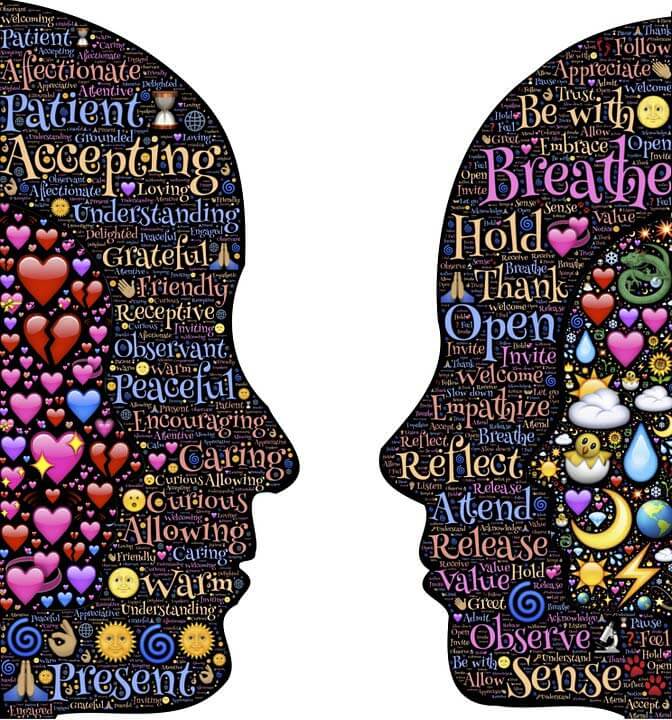

It is much easier to lie with words than with our bodies or faces. If there is a clash between the messages from verbal and non-verbal communication, the non-verbal communication is generally more reliable. TOP TIP! Trust non-verbal over verbal communication Under these circumstances, it is much harder to continue to talk. This encourages the speaker to continue, because it shows that the listener is interested.īy contrast, if someone is fidgeting, looking out of the winter, yawning, or checking their phone or watch, it suggests that they are not paying attention. There are a number of signs that you are listening, both verbal and non-verbal.įor example, when people are listening attentively, they tend to make eye contact with the speaker, nod, and make affirmative noises such as ‘Mm-hm’. These factors will prevent you from listening effectively-so remove them from the equation. You can then concentrate harder to overcome the effect. Under these circumstances, the most effective thing that you can do is to be aware of your issue. With the speaker’s agreement, stop and get a drink, or something or eat, or change your chair.īeing distracted by some characteristic of the speaker, such as their looks or their accent. Turn off the noise, or go somewhere else where you can hear and listen effectively.īeing in physical discomfort, for example because you are hungry or thirsty, or your chair is uncomfortable. These include, but are not limited to:Ī lot of background noise, for example, because you are in a crowded room, or you have the television or radio on. However, it is also important to consider any (other) physical barriers to effective listening. We said above that you should remove any distractions. Remove Any Physical Barriers to Effective Listening You can find out more about the different types of ineffective listening, and what can prevent you from understanding the speaker’s message, in our page on Ineffective Listening. However, it can help you to avoid making assumptions or misinterpreting the message in any listening situation. This ability to set aside judgement is particularly important for empathic listening. Quite apart from anything else, if you listen to their whole message, you may find that your early impressions were wrong. Try to listen WITHOUT considering whether you agree or disagree, or how you are going to reply, or any feelings you have about the speaker.Ĭertainly do not start preparing a counter-argument in your head. It is also important not to make making any kind of judgement about the speaker or their message. Consciously Set Aside Any Judgement or AssumptionsĮffective listening means putting aside your prejudices, assumptions and biases. If you’re doing something else, then you’re NOT listening effectively. You can’t do it while you’re distracted or thinking about something else.
#Effective listening full#
Make eye contact with them to show that you are listening, and focus your attention on them.Įffective listening requires your full attention. Put your phone away, turn away from your computer, put aside your thoughts about what you’re going to have for lunch, and simply concentrate on what they’re saying.

When someone is speaking, it’s time to stop what else you were doing, so you can focus on listening. Top Tips to Improve Your Listening Skills and Make Listening More Effective 1. However, if you’re in a hurry, you might prefer to start right here: with a page of top tips for effective listening drawn from all of our content on listening skills. How can you start to develop your listening skills? You might start with our page on Listening Skills, or Effective Listening-or even with our Interpersonal Skills Self-Assessment to identify particular problem areas. It requires you to use your eyes and ears, to understand both verbal and non-verbal communication, and your mind to interpret what you are seeing and hearing on both a logical and an emotional basis. We all know and understand that listening is far more than merely hearing. Personal and Romantic Relationship Skills.Conflict Resolution and Mediation Skills.Non-Verbal Communication: Face and Voice.Tips for Effective Interpersonal Communication.

The SkillsYouNeed Guide to Interpersonal Skills


 0 kommentar(er)
0 kommentar(er)
